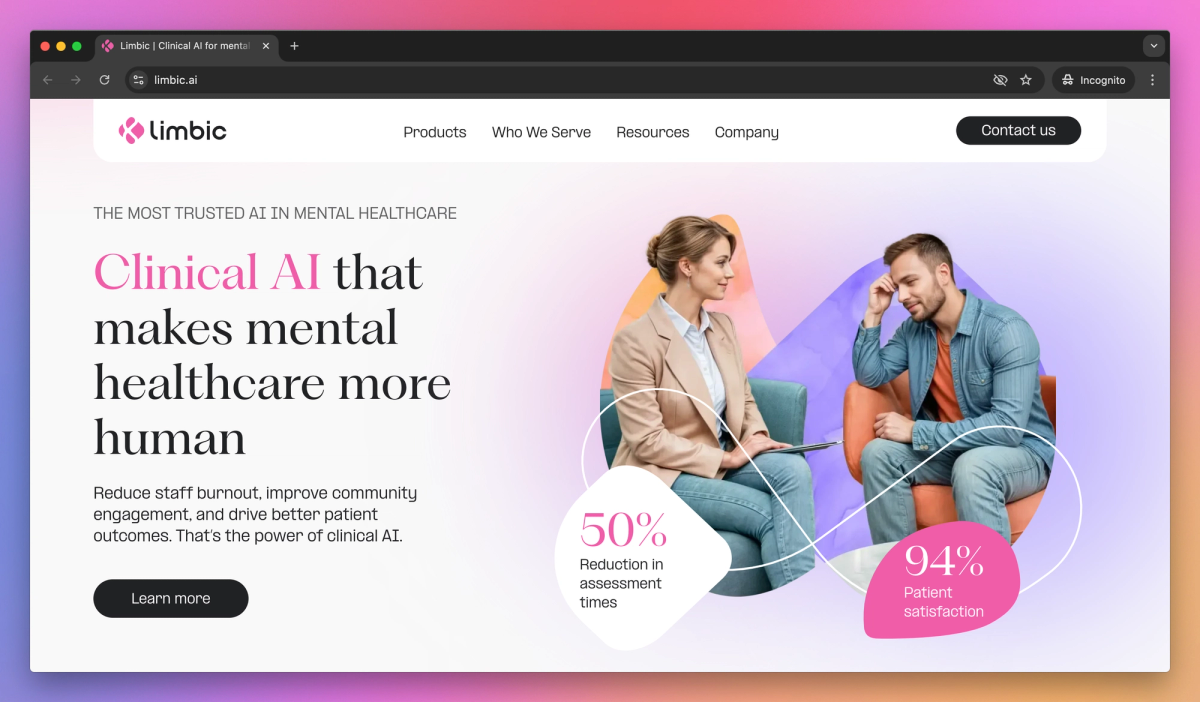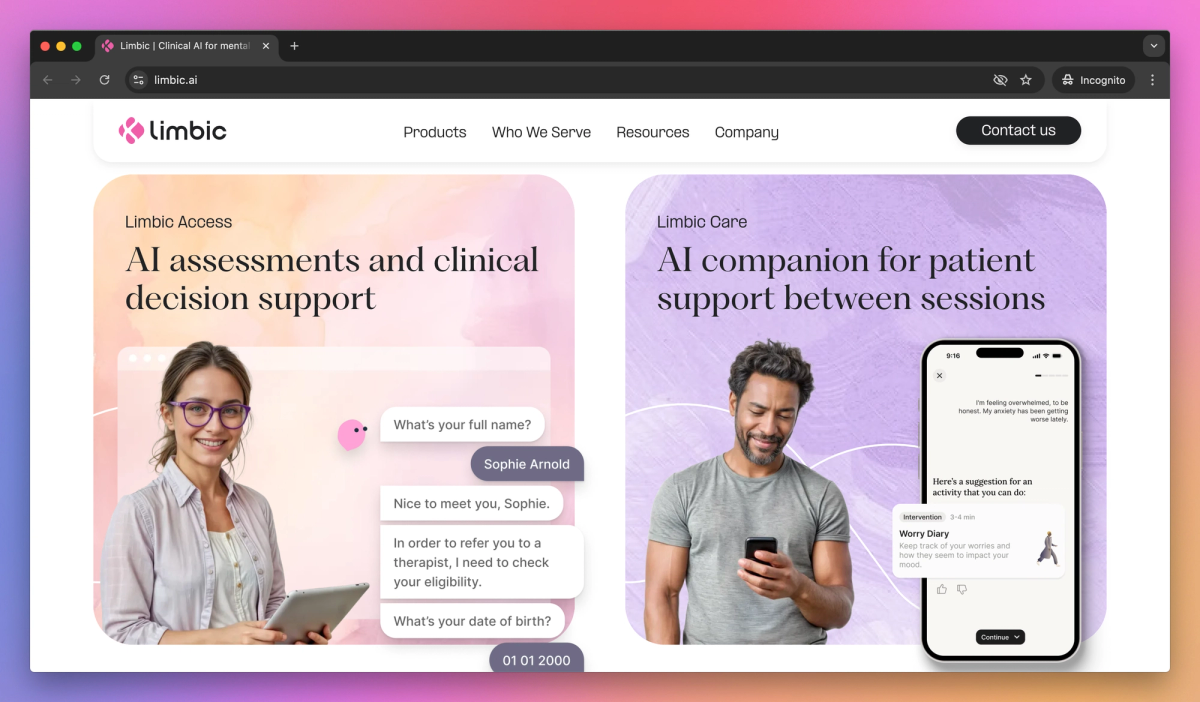

What is Limbic AI?
Limbic AI offers mental healthcare providers an AI-driven system for patient intake, assessment, and support. It allows clinicians to spend less time on administrative tasks and more on therapy, while providing patients with 24/7 conversational support between sessions, resulting in improved treatment outcomes and reduced dropout rates.
What sets Limbic AI apart?
Limbic AI stands out with its AI-driven clinical decision support, which helps mental health providers diagnose conditions like anxiety and depression more accurately. This technology allows clinicians to create personalized treatment plans faster, reducing the time needed to start effective therapy. By combining artificial intelligence with clinical expertise, Limbic AI aims to make quality mental healthcare more accessible to those who need it.
Limbic AI Use Cases
- Mental health assessments
- Patient intake automation
- Clinical decision support
- On-demand therapy support
Who uses Limbic AI?
Features and Benefits
- Limbic Access conducts AI-driven patient intake and clinical assessments to streamline the initial evaluation process.
AI-Powered Assessments
- The system provides diagnostic suggestions and treatment pathway recommendations to assist clinicians in making informed decisions.
Clinical Decision Support
- Limbic Care offers patients an AI-powered app for support between therapy sessions, including guided activities and conversational assistance.
Patient Companion App
- Limbic integrates with existing Electronic Health Record systems to streamline data flow and reduce administrative work.
EHR Integration
- The platform tracks patient progress and treatment outcomes, providing insights to help optimize care delivery.
Outcome Monitoring
Limbic AI Pros and Cons
Provides a calm and non-pushy approach to mental health support
Offers easy-to-answer questions for users
Creates an open space for seeking help and support
Reassures users about available help
Limited number of user reviews available
Lack of detailed feature information
Potential privacy concerns with mental health data
May not be suitable for severe mental health issues
Pricing
AI assessments and clinical decision support
Streamline clinical assessments
Enhance diagnostic accuracy
Expand patient access and engagement
AI companion for patient support between sessions
Integrate with patient-specific treatment plans
Provide on-demand conversational support via clinically validated AI
Deliver better clinical outcomes







